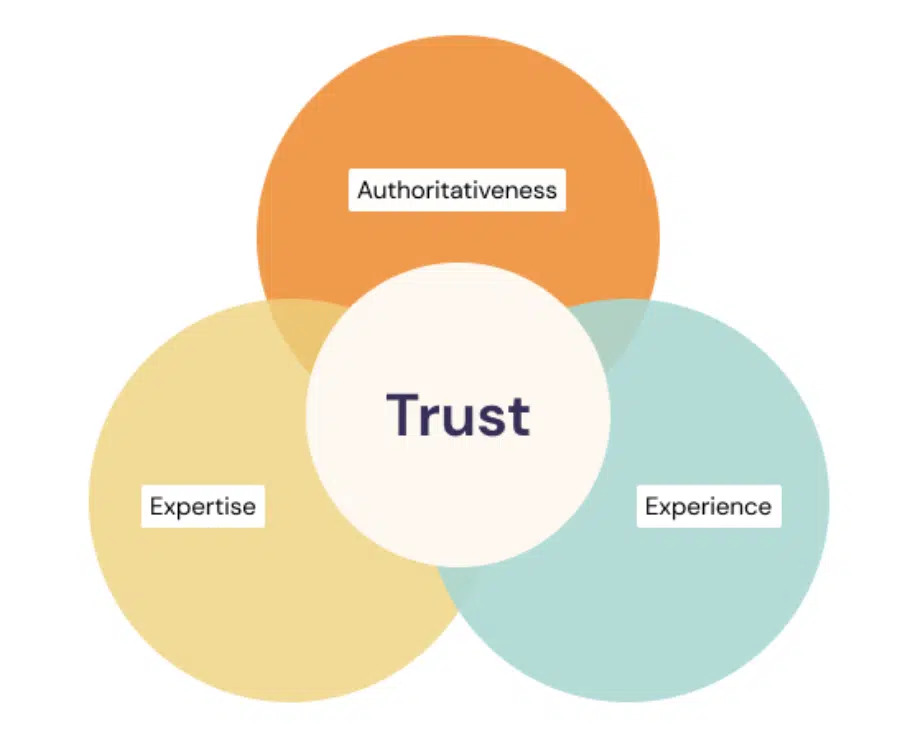Dig deeper into E-E-A-T – specifically what it means, why it matters to SEO, and tips to use it to your advantage.
Google recently added an extra “E” to the search quality standards of E-A-T to ensure content is helpful and relevant.
The extra “E” stands for “experience” and precedes the original E-A-T concept – expertise, authoritativeness and trustworthiness.
We know that E-A-T was already of high importance. Hyung-Jin Kim, VP of Search at Google, confirmed this at SMX Next:
“E-A-T is a template for how we rate an individual site. We do it to every single query and every single result. It’s pervasive throughout every single thing we do.”
To rank at Google’s SERPs, you must demonstrate E-E-A-T in your content strategy.
This comprehensive overview will dig deeper into E-E-A-T – specifically what it means, why it matters to SEO, and how to use it to your advantage.
E-E-A-T: What does it mean for SEO and why is it important?
Trust is earned by demonstrating experience, expertise and authoritativeness, according to Google’s search quality rater guidelines.
As a ranking factor, E-E-A-T feels more than reasonable. After all, in the real world, we trust sources who are qualified and would prefer to get information or advice from authoritative people.
Google provides a perfect example of this in the Google Search Central Blog, pointing out that if you want to find tax information, you’ll want to see content produced by an accounting expert.
A tax advisor or accountant would be a highly desirable source since they have experience, expertise and authority on the subject, so we trust what they have to say. We can be sure we’re getting accurate and sound information.
Google wants to provide accurate information to its users, so to gain traction in SERPs and get your site to the top spots, you need to demonstrate E-E-A-T.






